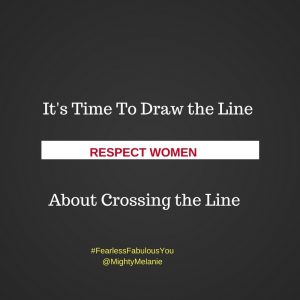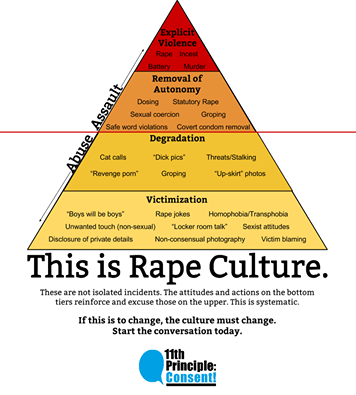It was a sunny day on the tennis court that summer, and more than the weather was heating up. We were coming to the end of the set. My ball hit the net. We both went up to retrieve it. As we lifted our heads our eyes locked. His were deep blue, and they stared at me intently. He reached over the net and grabbed the back of my neck and started to kiss me. My heart raced.
Sound romantic? It wasn’t. The man was my direct boss at the public relations agency where we worked, and he had crossed the line. We were at his tennis club north of Manhattan. My only way home was in his two seat sports car which felt like a cage as he drove down the West Side Highway. He made small talk; I said nothing, swallowing both my pride and the sick taste creeping up my throat. Once we reached what I considered a safe spot in the city, I begged him to pull over and let me out. I vomited on the sidewalk, closed the car door and walked away.
I never reported him for his conduct. I was afraid to rock the boat at work. Everyone at the firm loved my boss and I considered him my mentor. I was in my twenties, struggling to pay bills and eager to advance my career. When he was hired he said, “Stick with me Melanie. I’ll introduce you to my world and help you realize your goals.” He invited me to dinners with his glamorous friends and powerful industry connections. We worked closely together on some very successful programs. I thought he respected me. I looked up to him.
Instead of filing a complaint about his actions I became a complainer. I said I wasn’t making enough money for the work I was doing. I said I wanted better accounts to manage, a promotion, a transfer to another group. I complained that that my boss spent too much time on the phone with friends or reading the newspaper at his desk and I could do his job better than him.
I was fired for having a bad attitude. He stayed at the firm for several more years. I’m told he ended up having an affair with the young woman who worked under me.
Looking back, this was not an isolated incident of sexual aggression. There was the babysitting incident when father with alcohol on his breath crept up to me and kissed my neck while his young kids were sleeping in another room. There was the family friend who’d plant a sloppy wet kiss on mouth when he came over to visit. There was the male client whose hand I kept pushing off my thigh under the table at a business dinner, and he complained to my company that I had a bad attitude. I never said anything because I didn’t want to rock the boat. I pushed it to the back of my mind.
Many women have experienced some form of sexual aggression. Many pushed it under the rug rather than rock the boat. You can call it sexism, sexual harassment, sexual predation. It’s all inappropriate behavior, and it should be designated illegal behavior.
Why do we stay silent when someone crosses the line rather than speak out?
Why do we not dig in and draw a deeper line in the sand to establish our boundaries?
Why do try not to rock the boat to save our jobs or relationships rather than speak out to save our sanity and spirits?
Many of us just push the incident to the back of our minds where it silent simmers until something, like another news report about a sexist remark or a sexual attack, brings it to a boiling point. And you decide to speak out.
There are too many blurred lines in this area. Women are still questioned about their behavior instead of the other way around. Did she bring it in on because she was “too friendly”…”dressed too provocatively”….”drank too much”? What about him? Shouldn’t his creepy behavior be questioned?
I’d like to see more workshops for young women to deal with sexual aggression in every area, be it work, social or private. There are so many books on dating and finding the right man and having a meaningful relationship. Remember “The Rules?” Where’s the “The Rules” playbook on dealing with sexually aggressive men?
Whether it’s a male college student, a colleague, a client, a friend or a candidate, sexual aggression of any kind is inappropriate and unacceptable. The more women speak out the more the lines will unblur. Changing behavior toward women starts with changing attitudes aboutwomen.











